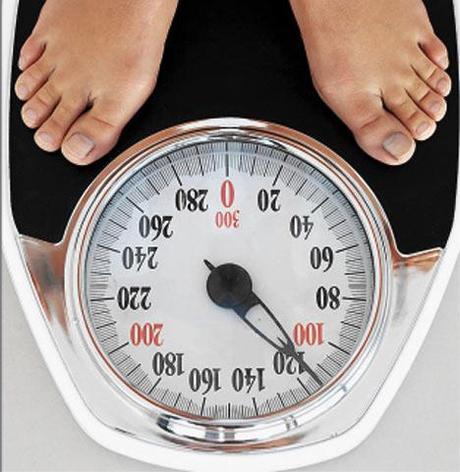The first time I felt bad about my body was at my best friend’s swimming pool birthday party, when I was just 11 years old. My friend, who has a very different body shape than I do, was much smaller than me at the time and I felt too conspicuous. It made the party I had been so looking forward to into a miserable experience. I felt like I was taking up too much space– a hard thing to conceptualize at any age, let alone 11.
As I got older, my dislike towards my body became less vague and more intense. I started hating my calves; I began to loathe my thighs. I constantly compared myself to others, and I thought about my weight way more than anyone should. It kept me from enjoying– and in some cases from doing– certain things. It kept me from noticing and speaking out against things. And even though I’ve read and heard about body positivity countless times, even though I know all about the rampant use of photoshop and the like, even though I recognize that this culture is oppressive, it’s still hard. There are still times when I feel guilty about everything I put in my mouth. Sometimes I still try on eight different outfits to find the most “flattering” one. Sometimes I still feel so big and inadequate that all I want to do is go home and cry. And I know I’m not the only one.
In our culture, body hatred is the norm, and it is very oppressive. When girls are taught that their weight determines their worth, it can become all consuming and keep them from achieving all that they are capable of. Ingrained and institutionalized insecurity keeps people from doing things or speaking up about things. It traps them in an internal cycle of self loathing. When girls (I’m speaking about girls both because I can speak personally and because more often than not it’s girls who are most affected by this) are taught that they are only valid and valuable if they look a certain way, they start to believe that their worth is contingent solely on their body.
Not only is this an incredibly sad thing to believe, but it’s also incredibly dangerous. It’s so much easier to oppress and subjugate someone who feels insecure, making it so much easier to maintain oppressive and unequal power structures.
Body shaming is such an effective means of subjugation because it’s so subversive. Most people aren’t outright taught that “you should hate your body.” But every time they turn on the TV and see only a certain body type being valued, they are taught body hatred. Every time they pick up a magazine with an airbrushed model and a headline that says, “Get an insane body: it’s hard, but you’ll look hot” (right under an eating disorder-related headline, nonetheless. I’m looking at you, Seventeen), they learn insecurity. We are taught that we’re never enough– never skinny enough, never pretty enough, never have white enough teeth or small enough pores. And if we aren’t constantly trying to “fix” ourselves, we’re sloppy and lazy. Body hatred and insecurity are taught in such a way that it just seems normal.
And when people feel bad about themselves, they think it’s their fault, that they just need to change, rather than blaming the culture that says that they have to change in order to be valid and accepted. It keeps them quiet and preoccupied, and it keeps them from trying to change anything.
Just think of how much time we spend worrying about our bodies. From trying on ten different outfits to see which one is the most “flattering”, to obsessing over pictures of ourselves and comparing them to others, to negotiating with ourselves about what we should and shouldn’t eat (and then being plagued with guilt for choosing chocolate over an apple), we devote a lot of time and energy to bodies and our perceived flaws. Think of all the extra time we would have if we decided to stop this negative self talk. What could we accomplish?A lot.
I’m not sure where exactly I learned to hate my body, when I decided to measure my self worth with physical numbers and visible bones, or what exactly it was that taught me that the best parts of me aren’t even me, but the absence of me.
But at some point in my life, I learned these things. I know many of us have learned these things. And these are things that we desperately have to unlearn.
For starters, we have to keep talking about our feelings of body hatred. We can’t keep them bottled up. That makes it harder to deal with for us as individuals, and it makes it harder for us to collectively shift our perspective. We have to harness our feelings of hatred and inadequacy and turn them into good, valuable, passionate anger that we can use to put an end to the culture of inadequacy and body hatred.
We have to realize that the problem isn’t our bodies, but the society that taught us to hate them. We have to understand that our worth and value have nothing to do with how much space we take up. We have to work to change society, rather than our physical selves, in order to eradicate the oppressive culture of body hatred. We have to realize that weight and size are literally just an indication of body type and how many fat cells we have, and that no matter what we look like what really matters is how much kindness, intelligence and passion we have. And when we realize that, we can start revolutionizing this oppressive culture for everyone. After all, no one needs a thigh gap to change the world.


